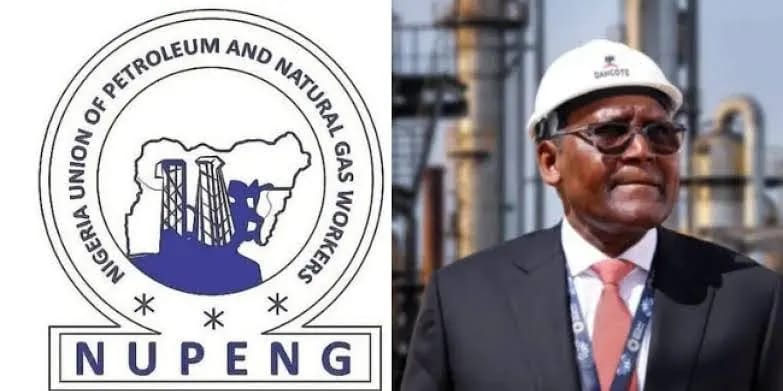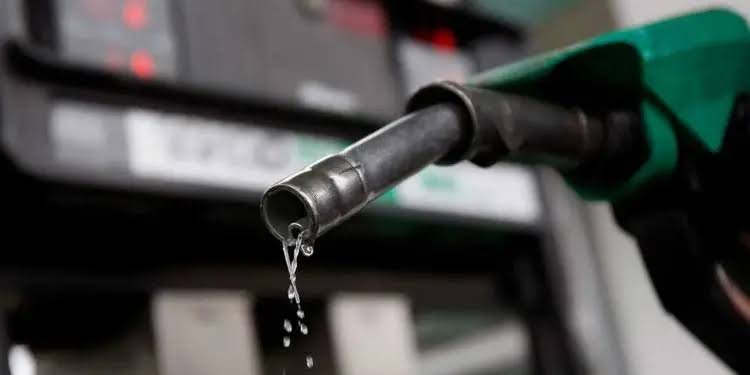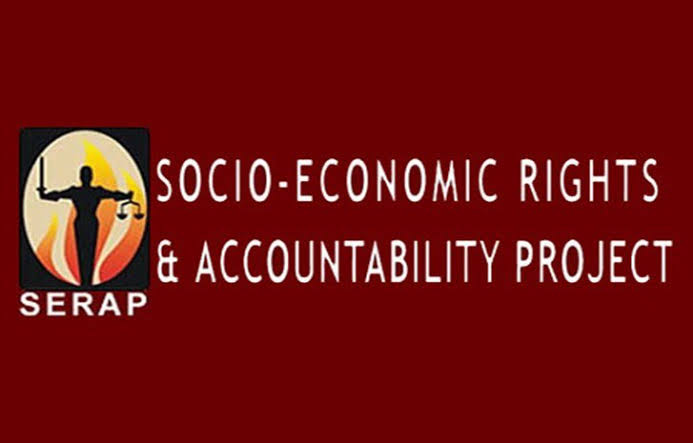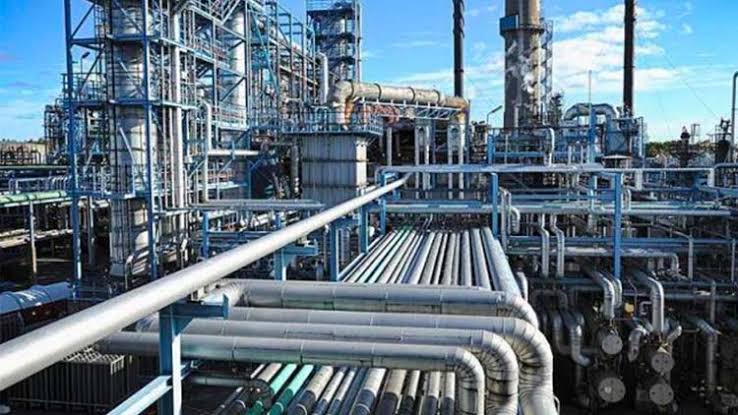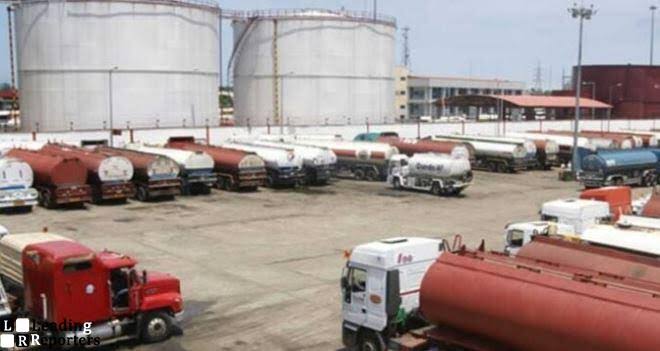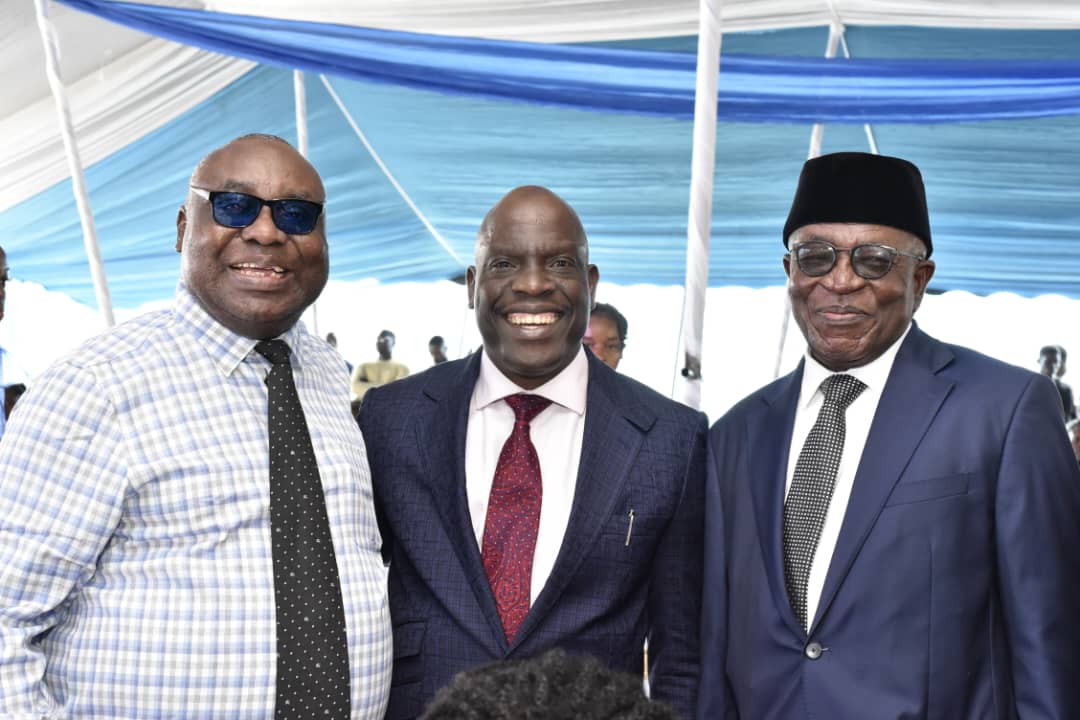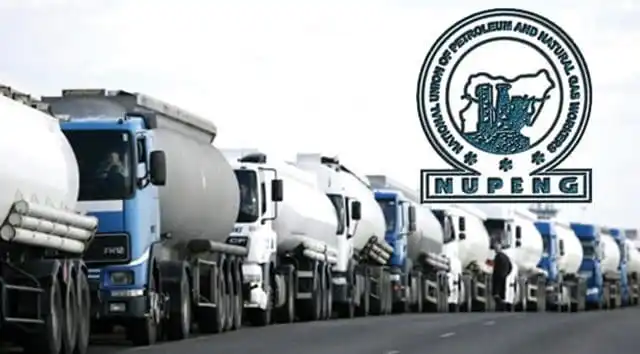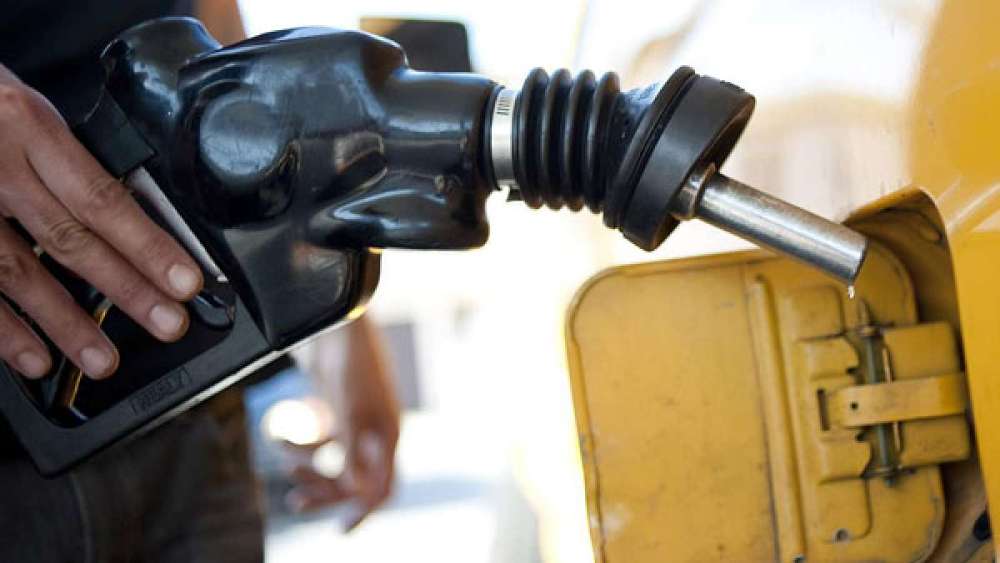The alarm in Nigeria’s oil and gas industry, now blaring loudly, was first sounded by Mr. Tony Elumelu. In 2021, Elumelu invested over $1.1 billion to acquire a 45% stake in the OML 17 oil drilling asset, a venture in which Shell, Total, and Eni relinquished their shares, leaving the Nigerian National Petroleum Corporation Ltd (NNPCL) with the remaining 55% on behalf of Nigerians.
To his dismay, in 2022, Elumelu discovered that only a small portion of the crude oil produced from his wells and fed into the Escravos pipeline actually reached its intended destination. The majority of the crude was being stolen by oil thieves who had mastered the technique of illegally tapping into the Escravos pipeline.
It is widely known that the criminal siphoning of our crude oil into vessels, which are then transported to unknown locations by thieves, is robbing Nigeria of desperately needed foreign exchange from oil sales. This theft has severe consequences for the country’s economy.
In a recent interview with the Financial Times of London, Tony Elumelu expressed his frustration that oil theft continues to account for about 18% of production. He emphasized the seriousness of the issue, saying, “This is oil theft, not something small like stealing a bottle of Coke. The government should know who is behind this and should inform us. In the U.S., when Donald Trump was shot at, the authorities quickly identified the assailant. Our security agencies should be able to tell us who is stealing our oil. How can vessels enter our territorial waters without our knowledge?”
In what seems like response to Elumelu’s challenge to Nigeria’s security agencies, a special task force was established by the Chief of Defense Staff, General Chris Musa, to combat the oil theft syndicate. The task force has achieved some success, allowing the Nigerian National Petroleum Corporation Ltd (NNPCL) to project an increase in oil production from the current estimate of 1.3 million barrels to 2 million barrels next year.
Alhaji Aliko Dangote, another prominent investor in Nigeria’s oil industry, also voiced concerns about issues in the downstream sector. Dangote, who recently launched a $19.5 billion refinery with a capacity of 650,000 barrels per day, has faced difficulties due to a lack of crude oil supply. Mr. Davakumar Edwin, Vice President of Dangote Refinery, accused International Oil Companies (IOCs) of starving the refinery of crude oil feedstock, which has delayed the supply of petrol to the Nigerian market. Edwin stated, “Aside from Nigerian National Petroleum Company Limited (NNPC Ltd), to date, we have only purchased crude directly from one other local producer (Sapetro). All other producers refer us to their international trading arms.”
He further explained, “For instance, in April, we paid $96.23 per barrel for a cargo of Bonga crude grade, excluding transport. The price included $90.15 for dated Brent, $5.08 for NNPC’s premium (NSP), and a $1 trader premium. Meanwhile, we bought WTI at a price of $90.15 for dated Brent plus a $0.93 trader premium, including transport. When NNPC later lowered its premium based on market feedback, some traders began asking us for a premium of up to $4 million over and above the NSP for a cargo of Bonny Light. Data from platforms like Platts and Argus shows that the prices offered to us are significantly higher than market rates. We had to escalate this issue to the NUPRC.”
Alhaji Aliko Dangote, President and Founder of Dangote Group, echoed Edwin’s concerns but clarified that the NNPC is doing its best. He noted, “Some of the IOCs are struggling to provide us with crude. Everyone is accustomed to exporting, and nobody wants to stop exporting.”
Also, as if in response, President Bola Tinubu has formed a committee led by Finance Minister Wale Edun. This committee has been tasked with developing a framework that will allow crude oil to be sold in naira to local refineries, starting with the Dangote Refinery. Following discussions with stakeholders, the committee has reportedly set a target for next month to begin producing petrol locally, which would help alleviate the pressure on the national treasury caused by the need to provide foreign exchange for petrol imports.
The expected output from the Dangote Refinery could also relieve Nigerians from the dual burden of not only paying high prices for petrol but also wasting valuable time queuing for fuel—an issue that many hope President Tinubu’s intervention will resolve permanently.
It is noteworthy that while Tony Elumelu is shocked by the brazen crude oil theft in the downstream sector, which is causing significant revenue loss to both his company and the country, Aliko Dangote is facing challenges from International Oil Companies (IOCs) that are withholding crude oil feedstock from his refinery. This ultra-modern facility is crucial for ending Nigeria’s reliance on petrol imports, which have long been a major component of the country’s import expenses, especially as the government has been subsidizing petrol prices for years.
These two significant challenges, which have caused sleepless nights for these two indigenous multi-billionaire investors in the oil and gas industry, are critical. If resolved, they have the potential to transform Nigeria’s socioeconomic development from a negative to a positive trajectory.
Fortunately, the outspoken criticism of industry irregularities by these two relatively new entrants into the oil sector is prompting much-needed reforms. The industry is currently undergoing what could be called a facelift through the strengthening of the Petroleum Industry Act (PIA), which was passed into law in 2021 but has yet to be fully enforced.
These issues underscore why understanding the toxic international petroleum politics in Nigeria, discussed in detail in this piece, should concern all Nigerians. Moreover, it is crucial to recognize that the oil and gas sector is the backbone of Nigeria’s economy, and we must protect it fiercely. The high cost of living crisis triggered by President Bola Tinubu’s removal of the petrol subsidy on May 29 last year highlights the central role that crude oil and its derivatives play in our economy and daily lives.
A question likely on the minds of some readers is whether the current upheavals in the oil and gas industry are new issues. The reality is that these challenges have existed since crude oil was first discovered in 1957 and its exploration began in Oloibiri, now part of Bayelsa State. However, the reason these issues—such as crude oil theft and the allocation of oil for local refining—are now receiving more attention is because private investors, who place a high value on accountability, are now involved in the industry.
In the past, when the oil and gas business was solely a matter between the government and International Oil Companies (IOCs), efficiency was not a priority for those on the government’s side. But now, with private investors like Tony Elumelu and Aliko Dangote—who have invested $1.1 billion in oil exploration and $19.5 billion in refining, respectively—these entrepreneurs are determined to protect their investments and ensure a return on their bold ventures.
Faced with the harsh realities and absurdities of the industry, both Elumelu and Dangote became increasingly frustrated when their investment plans were threatened by unexpected saboteurs. Their concern for their investments contrasts sharply with the often indifferent attitude of public servants, who traditionally did not prioritize Nigeria’s 55% equity in joint ventures with IOCs, which Elumelu has now acquired the 45% hitherto held by the transnational oil corporation.This same lack of concern for protecting Nigeria’s interests in crude oil production sharing agreements is why there has been no proper metering system to accurately measure the volume of crude oil pumped into pipelines or shipped abroad until private investors like Dangote entered the scene with his refinery, capable of refining at least half of Nigeria’s present crude oil output.
So, rather than viewing the disruptions caused by the agitations by Elumelu and Dangote as problematic, I see them as opportunities. Their involvement signals a positive shift in the industry as they justifiably questioned what could have happenned to their substantial financial commitments in oil exploration and refining, if the sector was not properly sorted by government. In my view ,Elumelu and Dangote can be seen as catalysts for change in an industry long plagued by complexities and absurdities. Indeed their efforts are beginning to help clean up or sanitize the industry, reinforcing the idea that private sector involvement introduces greater efficiency compared to government-driven operations burdened by bureaucracy.
Most Nigerians would likely be shocked to learn that the lack of ownership mentality among officials responsible for national assets—an attitude reflecting a deep-seated lack of patriotism—is partly to blame for the fact that four federal government-owned refineries have been non-functional for nearly two decades. Equally alarming is the finding by a National Assembly committee that, despite the federal government investing up to $25 billion in public funds over the past decade for the turnaround maintenance of these four refineries, not a single liter of petroleum product has been produced. This situation is appalling, scandalous, and regrettable.
The same lack of accountability and ownership is also why crude oil theft continues to flourish, despite the NNPCL’s claim in its 2023 financial report to have spent around ₦1.8 trillion on securing its extensive oil and gas assets. Yet, millions of barrels of crude oil are still being stolen in massive ocean-going vessels without detection, contributing to Nigeria’s recent inability to meet its OPEC production quota.
It may surprise some readers to learn that the dysfunction of these four government-owned refineries is also due in part to sabotage, carried out by international organizations in collusion with Nigerian public servants embedded in the crude oil exploration and export value chain, particularly within the NNPC Ltd., which is responsible for importing petrol into Nigeria.
Former President Olusegun Obasanjo’s revelation adds another layer of complexity. He shared that during his presidency, he urged International Oil Companies (IOCs) to establish refineries in Nigeria, but they refused, citing rampant corruption in the sector. Obasanjo recounted that Shell, for example, declined his offer to take equity participation and manage Nigeria’s refineries, arguing that the refineries had not been properly maintained. Shell’s reasoning was clear: “There’s too much corruption with the way our refinery is run and maintained. And they didn’t want to get involved in such a mess.”
While Obasanjo viewed the IOCs’ rejection as an indictment of Nigerian corruption—a narrative often pushed by the Western world to make Africans blame themselves for the continent’s underdevelopment—I would argue that this refusal was actually a strategic move by the IOCs. As agents of imperialist interests, their primary goal has always been to extract crude oil and other raw materials from Africa, particularly Nigeria, for the industrialization of their home countries, rather than genuinely supporting African industrialization—a promise they frequently make but seldom fulfill, often deceiving those who are unaware of their true intentions.
Most Nigerians would likely be shocked to learn that the lack of ownership mentality among officials responsible for national assets—an attitude reflecting a deep-seated lack of patriotism—is partly to blame for the fact that four federal government-owned refineries have been non-functional for nearly two decades. Equally alarming is the finding by a National Assembly committee that, despite the federal government investing up to $25 billion in public funds over the past decade for the turnaround maintenance of these four refineries, not a single liter of petroleum product has been produced. This situation is appalling, scandalous, and regrettable.
The same lack of accountability and ownership is also why crude oil theft continues to flourish, despite the NNPCL’s claim in its 2023 financial report to have spent around ₦1.8 trillion on securing its extensive oil and gas assets. Yet, millions of barrels of crude oil are still being stolen in massive ocean-going vessels without detection, contributing to Nigeria’s recent inability to meet its OPEC production quota.
It may surprise some readers to learn that the dysfunction of these four government-owned refineries is also due in part to sabotage, carried out by international organizations in collusion with Nigerian public servants embedded in the crude oil exploration and export value chain, particularly within the NNPC Ltd., which is responsible for importing petrol into Nigeria.
Former President Olusegun Obasanjo’s revelation adds another layer of complexity. He shared that during his presidency, he urged International Oil Companies (IOCs) to establish refineries in Nigeria, but they refused, citing rampant corruption in the sector. Obasanjo recounted that Shell, for example, declined his offer to take equity participation and manage Nigeria’s refineries, arguing that the refineries had not been properly maintained. Shell’s reasoning was clear: “There’s too much corruption with the way our refinery is run and maintained. And they didn’t want to get involved in such a mess.”
While Obasanjo viewed the IOCs’ rejection as an indictment of Nigerian corruption—a narrative often pushed by the Western world to make Africans blame themselves for the continent’s underdevelopment—I would argue that this refusal was actually a strategic move by the IOCs. As agents of imperialist interests, their primary goal has always been to extract crude oil and other raw materials from Africa, particularly Nigeria, for the industrialization of their home countries, rather than genuinely supporting African industrialization—a promise they frequently make but seldom fulfill, often deceiving those who are unaware of their true intentions.
Before delving deeper, it’s important to recall that oil and gas were discovered in commercial quantities in Oloibiri, modern-day Bayelsa State, in 1957. For years, Nigeria exported crude oil exclusively until the first refinery was established in Port Harcourt in 1965. Back then, all refineries were government-owned, and it was within the government’s prerogative to allocate 445,000 barrels per day (bpd) for local refining at the NNPC-operated facilities.
At the time, everything was managed within the government framework, which only required setting aside the 445,000 bpd needed by the four refineries located in the Niger Delta and Kaduna. Two of these refineries are in Port Harcourt with a combined refining capacity of 210,000 bpd, one in Warri with a 125,000 bpd capacity, and the fourth in Kaduna with a 110,000 bpd capacity.
Initially, the allocated crude oil came from the volume produced by International Oil Companies (IOCs), whose parent companies are based in Europe and Asia. However, today, there are multiple indigenous crude oil producers with significant capacity, as well as a growing number of local private refineries with substantial capacity, making the 445,000 barrels set aside for local refining insufficient.
Isn’t it remarkable that, aside from the persistent issue of crude oil theft, another challenge has been the shortage of crude oil for local refining? Yet, if all goes well, these two long-standing and seemingly insurmountable challenges in the oil and gas industry may soon be relegated to history.
In truth, the primary mission of the IOCs has always been to extract natural resources from Africa to fuel the industrial revolution in Europe, which began with the invention of the loom machine by Jeane-Marie Jacquard in 1804 and the steam engine by James Watt in 1765. Extracting crude oil for refining abroad is part of the agenda set during the Berlin Conference of 1884-85, where Africa was partitioned into territories for European powers under the guidance of Otto Von Bismarck, the German Prime Minister.
As these newly created territories were exploited for raw materials in the past, the current practice of exporting crude oil and other resources to Europe is an old habit that IOCs are reluctant to abandon. This resistance is evident in their opposition to President Bola Tinubu’s directive to sell oil to local refineries in naira. The IOCs seem intent on sabotaging efforts to achieve energy independence, citing commitments to overseas buyers as an excuse.
Given that the Petroleum Industry Act (PIA) took nearly two decades (13 years) to materialize and the Dangote Refinery took about seven years to build, why did the IOCs not anticipate that exporting all of Nigeria’s crude oil would no longer be viable? It’s telling that the multinational corporations were aware of the PIA’s implications, as evidenced by their divestment from onshore assets in favor of offshore operations. Yet, they continued to forward-sell Nigeria’s crude oil to foreign buyers, fully aware that the country had committed, through the PIA, to becoming more energy independent.
The primary reason for this situation is that it’s more profitable for the International Oil Companies (IOCs) to export crude oil to their home countries, where it is refined into products like PMS, DPK, AGO, and NAFTA. These products are then sold back to Africa at significantly higher prices. This practice has been the Standard Operating Procedure (SOP) of the colonial powers for a long time. As a result, they find it difficult to change their approach and sell crude oil to Nigerian refineries instead.
This continued extraction and export of raw materials from Africa aligns with the imperialist agenda of European countries. However, this long-standing practice (regarding crude oil refining) has been disrupted by the establishment and commissioning of the Dangote Refinery in Lagos last year, much to the dismay of these colonial exploiters.
To better understand the challenges Nigeria is facing, consider the following scenario: IOCs extract crude oil from Nigeria and export it to their home countries at relatively low prices (ranging from $37 per barrel in the 1980s to the current $80-$100 per barrel). There, the crude is refined and then sold back to Nigeria at several times the original cost per barrel. This process not only creates jobs and boosts the economies of the IOCs’ home countries, but it also leaves Nigeria with high unemployment among its youth and environmental degradation due to oil and gas exploration. This dynamic is why Nigeria often experiences a trade deficit, benefiting the home countries of the IOCs.
To further illustrate this point, let’s do a bit of math to compare the price of exported crude oil with the cost of imported petroleum products in Nigeria. A barrel of crude oil, which is equivalent to 42 U.S. gallons or 159 liters, is priced between $80 and $100. In contrast, the current landing cost of a liter of refined petrol imported into Nigeria is at least N1,117 per liter. Although comparing these figures can be challenging due to the different units of measurement—crude oil in barrels and refined products in liters—it highlights the significant markup and the opaque nature of the pricing, making the disparity between crude oil prices and refined product costs difficult to fully grasp.
For those willing to dig deeper, let’s compare the selling price of a barrel of crude oil—currently just $80, the price at which we export it overseas—with the N1,117 per liter landing cost at which we import the 159 liters contained in that same barrel. A quick comparison reveals that, as a net exporter of crude oil, Nigeria is at a significant disadvantage.
This comparison helps explain why our economy is struggling and why it can no longer sustain the burdensome petrol subsidy. It’s clear that the scenario outlined above is a major factor behind Nigeria’s financial deficit, which exceeds N120 trillion.
Given this reality, it’s crucial for us to support and encourage Aliko Dangote not to sell his refinery to the NNPCL, despite his threat to do so. This came after Alhaji Farouk Ahmed, CEO of the Nigerian Midstream and Downstream Petroleum Regulatory Authority (NMDRA), a subsidiary of NNPCL, wrongly accused Dangote Refinery of attempting to replace the national oil giant as a monopoly.
Moreover, we should encourage other business leaders, such as Chief Mike Adenuga of Conoil, Mr. Femi Otedola of Geregu, (who has been involved in and out of the oil industry), Sahara Energy’s Kola Adeshina, Aiteo’s Benedict Peters, Nestoil’s Ernest Azudialu, and other well resourced Nigerians, to invest more significantly in the sector. This would ensure that Nigerians are fully involved in the entire value chain—from exploration to refining, shipping, and even gas processing, where Julius Rone is making strides with his UTM Offshore.
Remarkably, Alhaji Samad Rabiu, owner of BUA cement, is also reportedly constructing a refinery of considerable scale. This could lead to a situation where Nigeria has the capacity to process crude oil into petrol in excess, much like how the country has become a net exporter of cement, with Dangote Cement and BUA Cement, dominating the African market and keeping foreign competitors like Lafarge and Flour Mills Cement on their toes.
Already , it is a tribute to the entrepreneurship of Nigerians that about five (5) Nigerian banks have spread their footprints into the African landscape with thriving subsidiaries in full bloom.
At this point, I believe that continuing to present additional facts and figures to justify the need for Nigeria, nay Africa’s independence from being an appendage to other economies and regions would be unnecessary. Rather readers should reflect on the situation and realize that, despite the challenges, our country is on the brink of a significant transformation in the oil and gas sector. So, it should be clear that halting the export of our crude oil and increasing local refining capacity is crucial for job creation, boosting foreign exchange earnings, and enhancing our GDP.
Currently, there are five fully operational modular refineries: Aradel in Port Harcourt, WalterSmith in Imo
State , Edo Refinery and Duport Midstream in Edo State, and OPAC in Delta State, with a combined processing capacity of less than 20,000 barrels per day. These smaller refineries are expected to benefit from President Bola Tinubu’s new directive to sell the 445,000 barrels per day of crude oil reserved for local refining in naira. It is the crude oil reserrve referenced above that was providing the supply for the four NNPCL refineries, which have been non-functional for over a decade despite consuming over $25 billion in turnaround maintenance, without producing even a single liter of petrol.
Hopefully , the present administration would see the wisdom in my advocacy for the sale of the ailing government refineries to private sector players who would operate them more efficiently as canvassed in my numerous media interventions over the past decade.
After providing a historical background to connect the past with the current state of the oil and gas industry in Nigeria, including the international factors exacerbating the local refining capacity crisis, it’s time to address the way forward.
As already underscored, International Oil Companies (IOCs) seem to struggle with changing their longstanding business model of extracting raw materials from Africa and processing them into finished products in Europe or Asia. This situation reinforces the theme of my upcoming book, *”Africa Exporting Wealth, Importing Poverty,”* with the subtitle: *”Are Africans Thinking or Sinking?”* The book details how the West has systematically underdeveloped Africa by exploiting its natural and human resources, from the era of the slave trade to colonialism, neo-colonialism, and the ongoing practice of imperialism encapsulated in unfair trade practices with Africa as the underdog and victim.
The current conflict between Aliko Dangote, NNPCL officials, and IOCs has exposed how Africa continues to be stripped of its resources. This confrontation represents one of the final struggles of African entrepreneurs with the awareness and determination to resist the ongoing exploitation by Western powers.
The environmental devastation caused by irresponsible resource exploitation in Africa, such as the irreversible damage in the Democratic Republic of Congo (DRC) due to mining, is well-documented. Belgium, the colonial ruler, left the DRC in a blighted state, a situation that persists today. It’s within this broader intellectual framework that I analyze the dispute between NNPCL executives, IOCs, and Dangote Refineries over Nigeria’s control of its petroleum resources.
Through this lens, I hope Nigerians will gain a deeper understanding of the conflict surrounding local petrol refining, which has been oversimplified by some analysts as a lack of planning by Dangote Refinery. In reality, it also stems from a rivalry between two Kano State natives—Aliko Dangote and Samad Rabiu—that has spilled over into the oil industry and society. Though a simplified view, it remains a valid observation.
Rather than engaging in buttonh heads, the two illustrious kano indigenes Aliko Dangote and Samad Rabiu need to start collaborating and stop sabotaging each other.
Magnus Onyibe,an entrepreneur,public policy analyst ,author,democracy advocate,development strategist,alumnus of Fletcher School of Law and Diplomacy,Tufts University, Massachusetts,USA and a former commissioner in Delta state government, sent this piece from Lagos, Nigeria.
To continue with this conversation and more ,please visit www.magnum.ng
